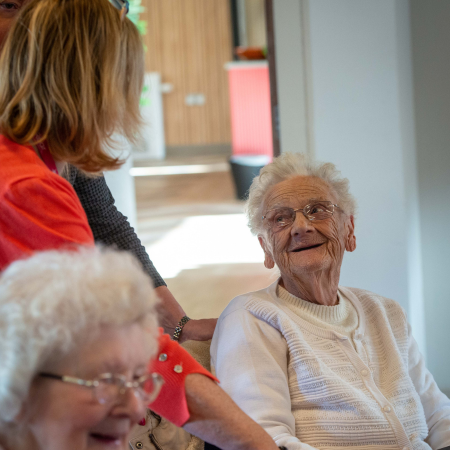Unfortunately, we all too often hear negative stereotypes in conversations about ageing, contributing to stigma and discrimination of older people in our community.
YOU can change this though, and it really isn’t that difficult.
By embracing age-positive language, you can promote respect and inclusivity for older adults, and show you fully understand and appreciate their contribution and purpose in your community.
1. Promoting Respect:
Using age-positive language demonstrates respect and dignity towards older adults, affirming their value to society. Instead of using terms we hear around Renfrewshire like "the oldies" or "elderly," which can sometimes carry connotations of decline, using neutral or positive descriptors such as "older adults" or "senior members of the community" helps acknowledge a more positive identity.
2. Challenging Stereotypes:
Ageist stereotypes can be dangerous and can support the nonsense notion that growing older naturally means one becomes irrelevant or burdensome. By using age-positive language, we challenge these stereotypes and shift the narrative surrounding ageing from one of decline to one of wisdom and vitality. Reframing our language can empower older adults to really embrace their later years with excitement, confidence and pride.
3. Fostering Inclusivity and Connection:
Language shapes social interactions, influencing how individuals are included in various aspects of life. Age-positive language can foster inclusivity by emphasising the shared experiences that unite people across all age groups. By promoting intergenerational understanding, we can create opportunities for meaningful engagement.
In fact, we saw first-hand the success of shifting this narrative during our intergenerational digital training project, which you’ll recall we won an award for last year!
4. Encouraging Healthy Ageing:
The language we use can also influence attitudes towards active ageing and leading a healthy, later life. At Roar, we can attest to the success of age-positive language in reframing ageing as a diverse process that can encompass both challenges and opportunities, that is a completely different experience for each individual. By highlighting the abilities, strengths and resilience of older adults, we may just inspire all ages to adopt healthy habits, pursue lifelong learning, and prioritise their well-being as they age.
5. Leading by Example:
It is everyone's responsibility to encourage and model respectful and inclusive language in our interactions. These interactions may not just occur in person, but might be in the ever-switched-on online world, and both are just as impactful. By leading by example and advocating for age-positive language (and challenging out others when we hear no-so-positive-language), we can create a cultural shift towards greater awareness and celebration of ageing as a fundamental and positive aspect of the human experience.
Because that’s one thing we all share; human experience.




